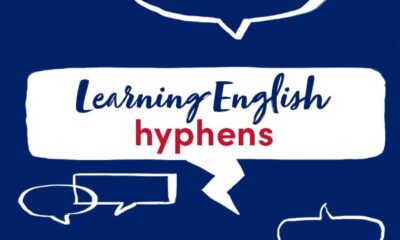Welcome back to our French learners’ blog. Today our word is en – a word that’s very small in size, but has a huge range of uses and meanings. To hear how to pronounce it, listen to the audio clip below:
One of its most common translations isn’t far off the English equivalent – en means in. But depending on the context, it can mean to, by, or some, among many other things.
It’s both a pronoun and a preposition – we will cover the use of both types of grammatical function in our examples. We recommend reading our Easy Leaning French Grammar pages on how to use en as a pronoun and how to use en as a preposition.
Let’s start by looking at some examples of the pronoun. It loosely translates as some or one of them. You can use it in relation to something that has already been established in the context of your conversation or sentence:
Kwame a trop de bonbons. Tu en veux ? Kwame has too many sweets. Do you want some?
Ils ne sont pas venus chez moi pour la fête. Ils m’ont dit qu’ils n’en savaient rien. They didn’t come to my house for the party. They told me they knew nothing about it.
Katrine a un bon salaire et elle en est fière. Katrine has a good salary and she’s proud of it.
Vous n’avez pas vu les vaches ? Il y en avait beaucoup. You didn’t see the cows? There were lots of them.
J’en ai quatre. I’ve got four (of them).
Now we’ll study examples where we use it as a preposition. Its most common translations in this case are in, to, or by:
en juillet in July
en avion by plane
arriver en retard to arrive late
habiter en France to live in France
aller en cours/classe to go to class
aller en vacances to go on holiday
une sculpture en marbe a sculpture made of marble
Pour l’examen, vous devez écrire en anglais. You’re required to write in English for the exam.
J’ai passé la semaine en Espagne. On est allé en voiture. I spent the week in Spain. We went by car.
You might also spot en being used alongside a verb in its present participle. This usually describes what someone or something is doing, or has done, while another thing is happening or has happened:
En lisant cette lettre, il a pleuré. He cried as he read the letter.
Je me suis blessé au dos en levant des gros cartons. I hurt my back while lifting some big boxes.
sortir en courant to run out (literally translates as ‘to exit by running’)
Now you know that this tiny word harbours some mighty power, try and fit it into your French learning routine. The more you use it in different contexts, the quicker you’ll get used to its different meanings. Until next time!
Written by Holly Tarbet, freelance copywriter and editor.
All opinions expressed on this blog are those of the individual writers, and do not necessarily reflect the opinions or policies of Collins, or its parent company, HarperCollins.



